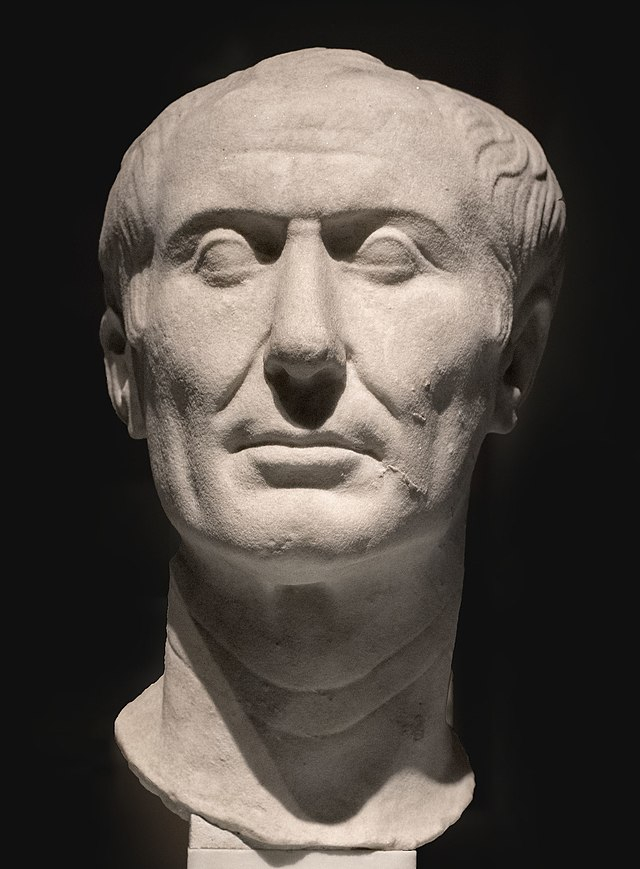Gaius Julius Caesar

Gaius Julius Caesar was a Roman general and statesman who lived from 12 July 100 BC to 15 March 44 BC. Caesar, a member of the First Triumvirate, led Roman legions in the Gallic Wars before defeating his political adversary Pompey in a civil war and becoming dictator of Rome from 49 BC until his assassination in 44 BC. He was a key figure in the events that led to the Roman Republic's demise and the emergence of the Roman Empire.
Caesar emerged to become one of the Roman Republic's most influential politicians after a series of military triumphs in the Gallic Wars, which were completed by 51 BC and considerably expanded Roman territory. With the Gallic Wars over, the Senate ordered Caesar to relinquish command of the army and return to Rome. In 49 BC, Caesar openly rejected the Senate's authority by crossing the Rubicon and marching with an army toward Rome. This sparked Caesar's civil war, which he won, giving him virtually unrivaled power and influence in 45 BC.
Caesar was a skilled novelist, historian, and statesman, and much of his life is known from his own chronicles of his military battles. Other contemporary sources include Cicero's letters and speeches, as well as Sallust's historical writings. Suetonius' and Plutarch's later biographies of Caesar are additional key sources. Many historians regard Caesar as one of history's greatest military leaders. His cognomen became a synonym for "Emperor"; the title "Caesar" was used across the Roman Empire, giving birth to modern cognates like Kaiser and Tsar. He has appeared frequently in literary and creative works, and his political doctrine, known as Caesarism, has influenced politicians into the contemporary age, as well as had important use and impact in the establishment of Populism.













